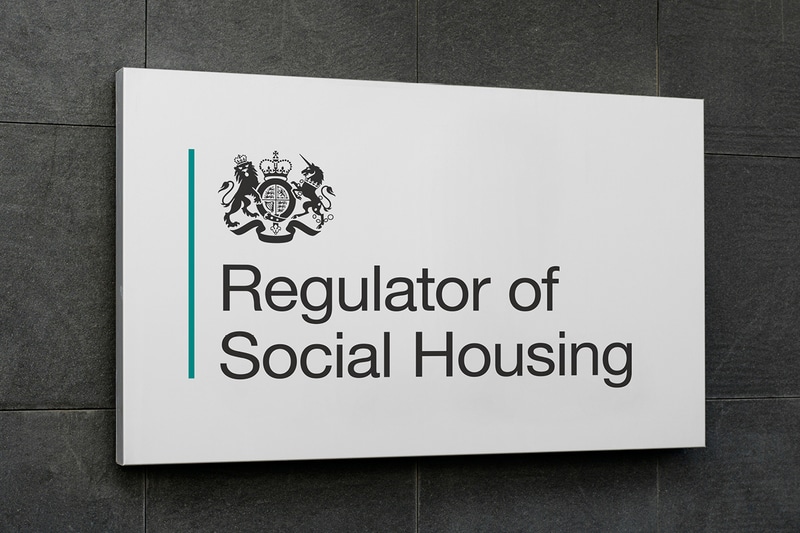This Month In Social Housing: June 2024
As summer finally (sort of) arrives and the excitement of the Euros grips the nation, it’s easy to find oneself caught up in the fervor and festivities. Add to that the buzz around an imminent general election and the potential for a shift in government, and you’d be forgiven for missing out on some of the key developments in the social housing sector this June. If you’ve been too busy following the campaign trail/berating Gareth Southgate’s team selections/cooking sausages in the back garden, then don’t worry as our regular This Month in Social Housing news-round-up is here yet again to bring you up to speed on the most important stories and updates you might have overlooked amidst the seasonal distractions…

Nearly One Quarter of English Councils Spent 5% of Core Budget on Temporary Accommodation in 2022-23
Fresh research from Generation Rent reveals that nearly a quarter of English councils allocated 5% of their core budget to temporary accommodation in 2022-23. Out of 249 councils analysed, 24% spent at least £1 in every £20 of their core spending power (CSP) on temporary housing, with 20 councils dedicating £1 in every £10. Hastings Borough Council had the highest expenditure at 49.3%, followed by Crawley Council at 30.1%, and Arun at 26%. Generation Rent’s CEO, Ben Twomey, called for urgent implementation of the Renters (Reform) Bill after it was shelved, noting the critical impact of Section 21 no-fault evictions on homelessness. The Local Government Association reported an 89% rise in households in temporary accommodation over the past decade, costing £1.74bn in 2022-23.

Repairs Spend Increased by 15% compared to 2022-23, According to Regulator
The Regulator of Social Housing (RSH) reported a record high in affordable homeownership (AHO) completions for Q4 2023-24, reaching 5,923 units. Nearly 200 providers spent £7.9bn on repairs and maintenance, prioritising damp, mould, and building safety. The sector saw the highest investment in three years with £4.4bn in new finance. Housing associations spent £14.4bn on new homes, a 10% increase from the previous year, but expect a 4% decrease in 2024-25. Rising costs, including interest, challenge providers’ finances. Despite strong liquidity and increased cash facilities, recruitment of specialised trade remains difficult. The RSH emphasised the need for providers to manage stock decency, remediation, and decarbonisation while preparing for higher operating costs and interest payments.

Labour Manifesto Promises to Increase Protections on Newly Built Social Rented Homes
Labour’s general election manifesto has set out the prioritising of construction and protection of new social rented homes, promising the largest increase in social and affordable housebuilding in a generation. Published on June 13, the manifesto also commits to abolishing Section 21 ‘No Fault’ evictions and enhancing building safety, with Labour planning to develop a cross-government strategy to tackle homelessness and support local councils and housing associations in expanding affordable housing. The manifesto also includes restoring mandatory housing targets, reforming compulsory purchase rules, and improving land assembly. Additionally, Labour aims to end the leasehold system, enforce commonhold tenure, and address unregulated ground rent charges. In addition, Labour “will ensure local communities continue to shape housebuilding in their area, but where necessary Labour will not be afraid to make full use of intervention powers to build the houses we need”.

Three-quarters of Public Say There is UK Homelessness Crisis
A charity’s research shows that 76% of the UK public believe there is a homelessness crisis, with 52% noting worsening conditions locally. Conducted by Opinion Matters for St Mungo’s, the survey found that 78% think ending homelessness should be a priority for the next government. St Mungo’s emphasised the need for immediate action within the first 100 days, calling for extended homelessness funding, renter protections, benefit alignment, and increased affordable housing. Current government funding for homelessness services ends in April 2025, threatening a third of St Mungo’s projects. The charity reported homelessness at an all-time high, with 4,000 people sleeping rough nightly and 80,000 households at risk. Major political parties have all addressed homelessness in their election manifestos.

Tenant Satisfaction with Social Landlords in England at Five-Year Low
Tenant satisfaction with social landlords in England has hit a five-year low, dropping below 70%, according to Housemark’s analysis of tenant satisfaction measures (TSMs). Satisfaction decreased from 85.1% in 2018-19 to 69.4% in 2023-24. Councils had a 65.7% satisfaction rate compared to 72.9% for housing associations. Only 5.6% of local authority landlords met the Decent Homes Standard, versus 41.3% of housing associations. The TSMs, covering repairs, building safety, complaint-handling, tenant engagement, and neighbourhood management, revealed issues in repairs and complaint-handling satisfaction. Despite the decline, Housemark expects service improvement investments to positively impact scores within 18 months, with improvements initiated now projected to show results in the 2025-26 TSM data.
Well, that’s another quick-fire news round-up chalked off for another month. We’re all off to prepare for the upcoming general election results frenzy/England’s inevitable quarter-final defeat to someone half decent by stocking up on Red Bull and Pro-Plus/pryos and Kleenex. Fear not though as we’ll be back here again in around four weeks’ time to do it all again. Arrivederci (it’s one on one)!
- This Month In Social Housing: November 2024 - December 3, 2024
- Leveraging AI in Social Housing: Building a Data Strategy for Enhanced Compliance and Efficiency - November 26, 2024
- This Month In Social Housing: October 2024 - November 1, 2024